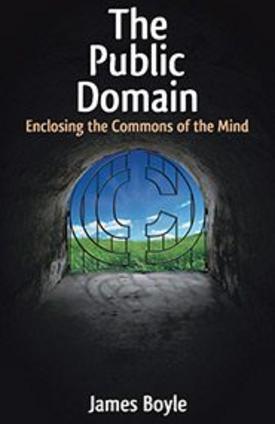An interesting sounding book The Late Age of Print: Everyday Book Culture from Consumerism to Control by Ted Striphas is out now both in print and in a online Creative Commons version or as the author puts it:
…not only as a copyrighted, bound physical volume, but also as a Creative Commons-licensed electronic book. You can download the e-edition by following the “download” link of the navigation bar, above, or by clicking here. The file is a “zipped” .pdf of the complete contents of Late Age, minus one image, for which I was (ironically) unable to secure electronic publishing rights.
I don’t want to split hairs but the digital version is also covered by copyright – but I get what he means. This sounds like a really interesting book and I am looking forward to reading it. For those of you who want more than the title here is the blurb:
Ted Striphas argues that, although the production and propagation of books have undoubtedly entered a new phase, printed works are still very much a part of our everyday lives. With examples from trade journals, news media, films, advertisements, and a host of other commercial and scholarly materials, Striphas tells a story of modern publishing that proves, even in a rapidly digitizing world, books are anything but dead.
From the rise of retail superstores to Oprah’s phenomenal reach, Striphas tracks the methods through which the book industry has adapted (or has failed to adapt) to rapid changes in twentieth-century print culture. Barnes & Noble, Borders, and Amazon.com have established new routes of traffic in and around books, and pop sensations like Harry Potter and the Oprah Book Club have inspired the kind of brand loyalty that could only make advertisers swoon. At the same time, advances in digital technology have presented the book industry with extraordinary threats and unique opportunities.
 Napoleon’s marshals who became king Charles XIV John of Sweden. During Oscar’s time as crown prince and heir to the Swedish throne he was very socially active. Among other things he wrote a series of articles on popular education, and (in 1841) an anonymous work, “Om Straff och straffanstalter”, advocating prison reforms. The latter was translated in many languages and in English was given the title On Punishments and Prisons.
Napoleon’s marshals who became king Charles XIV John of Sweden. During Oscar’s time as crown prince and heir to the Swedish throne he was very socially active. Among other things he wrote a series of articles on popular education, and (in 1841) an anonymous work, “Om Straff och straffanstalter”, advocating prison reforms. The latter was translated in many languages and in English was given the title On Punishments and Prisons. 

 Just a note to say that I am giving a lecture March 10 at 6pm at London’s RSA on my new book,
Just a note to say that I am giving a lecture March 10 at 6pm at London’s RSA on my new book,